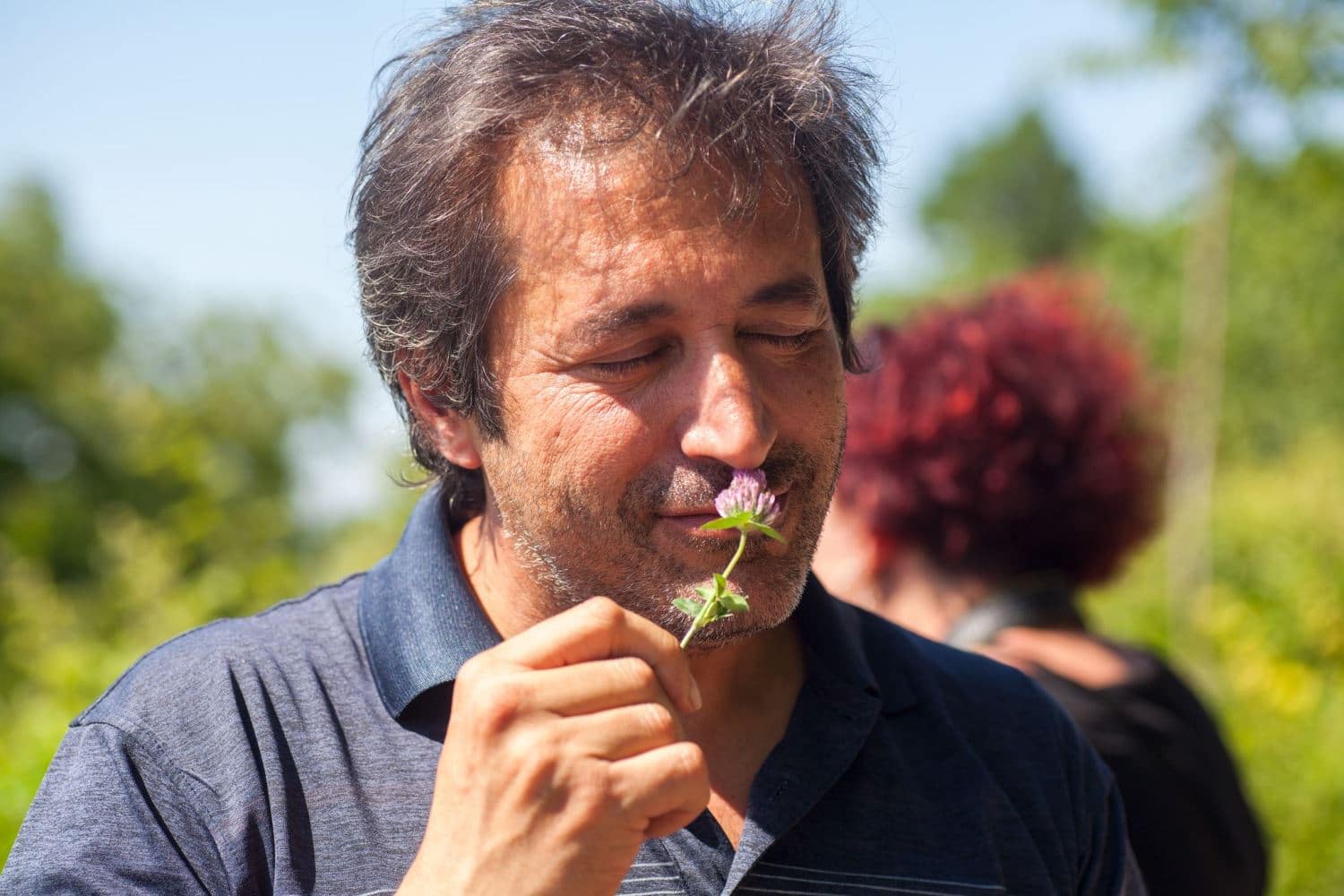Meeting Marcello was like confirming the basic idea that moves our nomadic events: behind every journey and every experience, first of all there are people.
We are not surprised, therefore, by the spontaneity and immediacy with which we proposed him to draw for us routes along the ancient sheep-tracks in contact with the most authentic Molise. Marcello is a teacher, behind him he has a life as a migrant that has taken him abroad, between cities and countries where he has never chosen to stop. In his nomadic state, he has always suffered the lack of connection to values and symbols of belonging that brought him back to his homeland, a choice espoused and shared by his entire family. Today he lives in the countryside where he can fulfill his desire to return to rural life, “especially among the foliage of the olive trees” (…), a way of life that allows him to give shape to the stories that a grandmother farmhand used to tell him when he was a child, in a world characterized by “magical realism.” But Marcello is not one to be satisfied, and his love for his land drives him to engage in the recovery and enhancement of those symbols that have the flavor of home and that have been a reminder of his roots for him. Thus, in 2008, he founded Ecomuseo Itinerari Frentani in an attempt to find a common thread between the identity of the territory and the elements that characterize it, a role that has always been recognized to agricultural and pastoral culture. In these 13 years, with Ecomuseo Itinerari Frentani Marcello has contributed to the preservation, enhancement and recovery of the historical memory, traditions, festivals and the natural and anthropic environment of the Molise Frentano, relating them to the economy and the “agro-pastoral culture kissed by the sea,” which he calls “the humus in which all these elements are rooted.” He has done this by rediscovering part of the ancient sheep-tracks and arms that cross the region along which he has designed tourist and nature trails dedicated to those travelers who seek contact with nature and the authenticity of the places they visit. He has done this by devising initiatives aimed at enhancing the archaeological sites, historic centers, Sacred Ways, art and culture, food and wine, and popular orality of this small but very rich region within the region. He did this by participating in the founding of the Cantori della Memoria, an ethnic music group from Molise that has in its repertoire local folk songs, set to music poems by poets from Frentano Molise and songs that he himself has written and composed. And, with the same enthusiasm and passion, he continues to do so by recounting (and singing about) a Molise that takes people into homes, into fields, into contact with locals and their lives to listen to the tales of a past that has shaped the present in which the traveler experiences. Marcello looks to the future with the same desire as in the past: to make the traveler discover now-abandoned routes and almost forgotten practices and to promote a return to a slow life that is able to give space to modernity without distorting the identity of the territory, promising to welcome travelers with the usual warm welcome and a sincere smile. Crossing Molise accompanied by Marcello means being inside a long folk festival made up of poetry, stories, songs and landscapes; it means opening a treasure chest of values that recognize the sacredness of the land and its products.
The traveler reciprocates with awe, an excited look, and a promise to return soon to immerse himself again in its magical realism.
*** Se sei curioso di conoscere il Molise etnico e vuoi calarti nelle sue tradizioni popolari, dai un’occhiata al nostro viaggio sostenibile In Cammino lungo gli antichi tratturi



